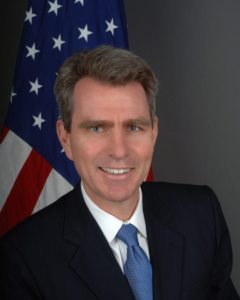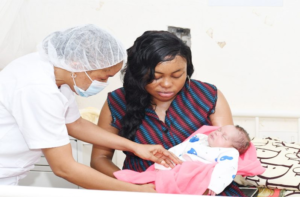St Kitts and Nevis appeals for help
ST. KITTS AND NEVIS IS USING THE ONGOING 67TH SESSION FOR THE COMMISSION ON THE STATUS OF WOMEN (CSW67) TO APPEAL FOR GLOBAL HELP to narrow the digital divide perennially forestalling gender equality and hurting countries in the Caribbean, Latin America, and Africa.
“Where North America, Asia, and Europe comprise most of the world’s IT (information technology) industry with a collective share of 88% leaving Africa and Latin America with 6% and 5% respectively of global tech industry distribution, any effort to leverage digital technologies for the enhancement of women and girls must recognize that the spread of opportunities for transformation is unfairly limited for developing countries,” St Kitts and Nevis Senator Isalean Phillip, with responsibility for Gender Affairs in the country’s seven-month-old government argued in her presentation at the UN-organised meeting.

The two-week UN meeting which is held under the theme ‘Innovation and Technological Change and Education in the Digital age for Achieving Gender Equality and the Empowerment of Rural Women and Girls’ has been attracting a wide range of participation.
In her address, Phillip told delegates the Basseterre government has made significant strides in its seven-month leadership, pointing to appointments of several women in Parliament, statutory boards, and corporations.
She noted that the Terrance Drew administration has also enjoyed successes so far in shaping inclusive cultures and representational spaces for women and girls in Information and Communication Technologies (ICTs) as well as Science, Technology, Engineering, and Mathematics (STEM).
Additionally, the St Kitts and Nevis Labour Party (SKNLP) administration’s introduction of the one-laptop-per-child initiative will help Basseterre leverage digital technologies as a tool for 21st-century teaching and learning by equalising access between boys and girls and across social and economic class divides.
The youthful senator Phillip revealed that globally, there is a disproportionate impact of the unequal distribution and ownership of innovative technology and intellectual property which as exposed glaring disparities among some member states to enable women and girls fulfill their full potential in the field of digital technologies.
The corresponding ripple effects negatively impact females, especially those living in small island developing states (SIDS) preventing them from accessing better healthcare, job opportunities, and financing.
“As we dialogue and table recommendations for prioritising digital equity to close digital divides, including the gender digital divide, I urge us to acknowledge that digital equity also requires a geopolitical lens that magnifies divides between the developed and the developing countries as distinguished by unequal creation and distribution of technologies,” Minister Phillip reiterated.










